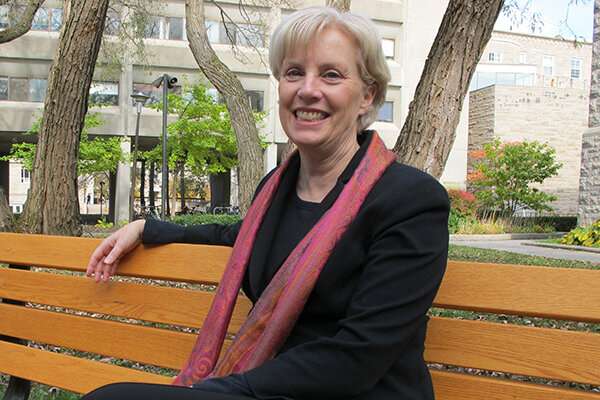A potential cure for sleeplessness

New research from Queen's University's Judith Davidson (Psychology) has shown insomnia can be treated effectively at the family doctor's office without the use of drugs.
The research, published in the British Journal of General Practice, confirmed Cognitive Behavioural Therapy for Insomnia (CBT-I) is effective in improving self-reported sleep, with improvements generally lasting up to 12 months after treatment.
The researchers, based at Queen's University, in Psychology and the Centre for Studies in Primary Care, conducted a systematic review of studies in which patients were provided with CBT-I through their family doctor's office. The team analyzed 13 studies involving 1,594 patients and found that between four and six sessions of CBT-I produced medium to large beneficial effects on time to sleep onset and wakefulness during the night. Patients felt much more content with their sleep after receiving the treatment.
GPs were directly involved in administering the CBT-I in a minority of the studies, but most CBT-I was provided by nurses, nurse practitioners, mental health workers and psychologists. The researchers say that CBT-I works effectively in primary care and seems well-suited for multidisciplinary general practice.
"There is now a way for general practitioners (GPs) to help insomnia sufferers without prescribing drugs," says Dr. Davidson. "Widespread studies have established that CBT-I works well to get patients sleeping well again and as a treatment it is both effective and lasting."
Chronic insomnia, in which individuals have difficulties falling asleep or staying asleep at least three nights a week for three months or more, affects about 10 to 15 percent of adults. The condition is linked to health problems including depression, difficulties in functioning, and large reductions in work productivity.
"There is a very effective treatment that doesn't involve medication that should be available through your primary care service. If it's not, it should be," says Dr. Davidson.
More information: Judith R Davidson et al. Cognitive behavioural treatment for insomnia in primary care: a systematic review of sleep outcomes, British Journal of General Practice (2019). DOI: 10.3399/bjgp19X705065

















